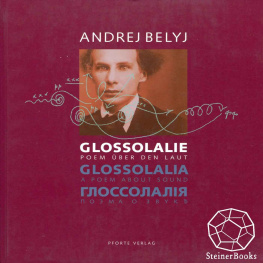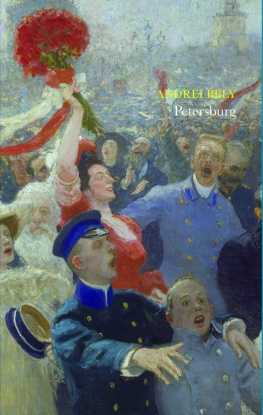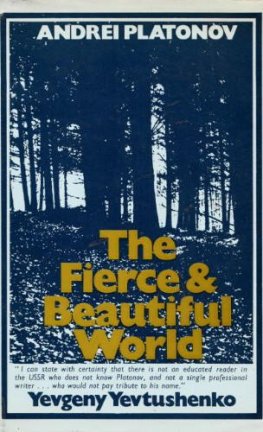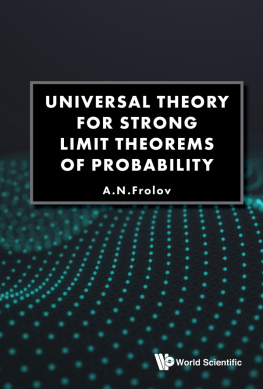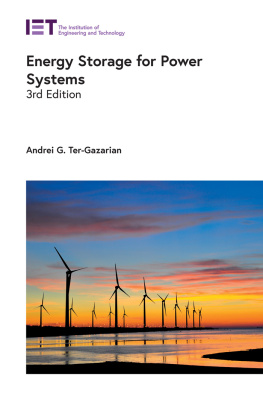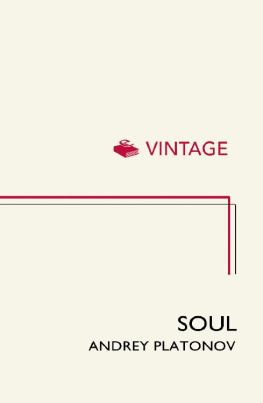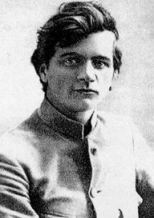Andrei Bely - Glossolalia
Here you can read online Andrei Bely - Glossolalia full text of the book (entire story) in english for free. Download pdf and epub, get meaning, cover and reviews about this ebook. year: 2002, publisher: Pforte Verlag, genre: Detective and thriller. Description of the work, (preface) as well as reviews are available. Best literature library LitArk.com created for fans of good reading and offers a wide selection of genres:
Romance novel
Science fiction
Adventure
Detective
Science
History
Home and family
Prose
Art
Politics
Computer
Non-fiction
Religion
Business
Children
Humor
Choose a favorite category and find really read worthwhile books. Enjoy immersion in the world of imagination, feel the emotions of the characters or learn something new for yourself, make an fascinating discovery.
- Book:Glossolalia
- Author:
- Publisher:Pforte Verlag
- Genre:
- Year:2002
- Rating:5 / 5
- Favourites:Add to favourites
- Your mark:
- 100
- 1
- 2
- 3
- 4
- 5
Glossolalia: summary, description and annotation
We offer to read an annotation, description, summary or preface (depends on what the author of the book "Glossolalia" wrote himself). If you haven't found the necessary information about the book — write in the comments, we will try to find it.
Glossolalia — read online for free the complete book (whole text) full work
Below is the text of the book, divided by pages. System saving the place of the last page read, allows you to conveniently read the book "Glossolalia" online for free, without having to search again every time where you left off. Put a bookmark, and you can go to the page where you finished reading at any time.
Font size:
Interval:
Bookmark:

Der russische Text entspricht der Erstausgabe des Buches unter dem Titel Glossalolija im Verlag Epocha, Berlin 1922.
Die deutsche bersetzung der Einleitung und der Kommentare von Thomas R. Beyer, Jr. besorgte Taja Gut.
Die einfhrenden Bemerkungen des Herausgebers und die Bildlegenden wurden von Thomas R. Beyer, Jr. ins Englische bersetzt.
Die Zeichnungen von Andrej Belyj im Abbildungsteil werden mit freundlicher Genehmigung des Staatlichen Puschkin-Museums Moskau, Abteilung Andrej Belyj Gedenkwohnung am Arbat wiedergegeben. Ein besonderer Dank gilt dabei Monika L. Spivak.
1. Auflage 2003
Alle Rechte, besonders der bersetzung sowie des auszugsweisen Nachdrucks und der elektronischen oder fotomechanischen Wiedergabe, Vorbehalten.
2003 fr die englische bersetzung by Thomas R. Beyer, Jr., Middlebury, Vermont
2003 by Pforte Verlag (im Rudolf Steiner Verlag), Dornach
Satz: Verlag
Umschlaggestaltung: Studio Lierl, Unterfhring
Printed in Germany by Greiserdruck, Rastatt
ISBN 3-85636-148-0
The Russian text corresponds to the first edition of the book published as Glossalolija by the Epokha Verlag, Berlin 1922.
The German translation of the introduction and commentary of Thomas R. Beyer, Jr. was done by Taja Gut.
The introductionary remarks of the editor and the legends were translated into English by Thomas R. Beyer, Jr.
The drawings by Andrei Bely in the illustration section are reproduced with permission of the Andrei Bely Memorial Apartment on the Arbat, Division of the State Pushkin Museum, Moscow. Special thanks go to Monika L. Spivak.
1st printing 2003
All rights reserved. Any reprint and reproduction in any form, including electronic or mechanical, or incorporation into any information retrieval system of the book including the translation is strictly prohibited.
English translation Copyright 2003 by Thomas R. Beyer, Jr., Middlebury, Vermont, USA
Copyright 2003 by Pforte Verlag (in Rudolf Steiner Verlag), Dornach, Switzerland
Cover design: Studio Lierl, Unterfhring, Germany
Typesetting: Publishing house
Printed in Germany by Greiserdruck, Rastatt
ISBN 3-85636-148-0
Contents
Dieses Buch verdankt sich einer Sprachverwirrung. Am Anfang stand eine Anfrage von Maka Kandelaki, ob mir eine russische Ausgabe von Andrej Belyjs Poem Glossolalija bekannt sei. Die einzige, von der ich wusste, war auf der Website von Thomas R. Beyer, Jr. (www.middlebury.edu/~beyer/gl) zu finden. Thomas Beyer, Professor fr Slawistik am Middlebury College in Vermont, USA, und Belyj-Forscher, hatte sich jahrelang der englischen bersetzung und Kommentierung des komplexen Werks gewidmet und seine Arbeit zusammen mit dem russischen Originaltext ins Internet gestellt.
Der Originaltext ist erschtternd, kam bald Makas Antwort, aber die deutsche bersetzung (ich kann kein Englisch) frcht-er-lich! Ob ich sie dazu ermuntern wrde, Glossolalija zu bersetzen?
Nun war da gar keine deutsche Version. Maka hatte versehentlich eine automatische bersetzung auf den Bildschirm geholt. Diese gab jedoch den Ansto zur, soweit ich sehe, ersten deutschen bersetzung des Poems, die gewissermaen in einer globalisierten Arbeitsweise verwirklicht wurde: Der grte Teil entstand in Tbilissi, an wechselnden Computern, von dort wurde der Text abschnittweise per E-Mail nach Dornach, Zrich, Freiburg im Breisgau und Middlebury in den USAbermittelt, an den verschiedenen Orten geprft, korrigiert, mit Fragen und Vorschlgen wieder durchs weltumspannende Datennetz geschickt, die beiden bersetzungen zusammen mit dem russischen Text gegengelesen, bis das Buch als Ganzes vorlag.
So kam es, dass wir von einem unbersetzbaren Text gleich zwei bersetzungen vor- und verlegen knnen, und zwar nicht nur in verschiedenen Sprachen, wie es sich fr die polyglotte Glossolalie gehrt, sondern auch unter zwei verschiedenen Gesichtspunkten, ber die sich sonst, seit es bersetzungen gibt, bersetzer leicht in die Haaren geraten. Hat Maka Kandelaki sich in ihrer deutschen Version einer gewissenhaften Wrtlichkeit verschrieben, ohne den Fluss der Sprache dadurch zu verbauen, so versucht Thomas R. Beyer in seiner bersetzung virtuos, mit den Wrtern, die das Englische hergibt, auch die Wortlautlichkeit des Originals zu erhalten.
This book is the result of a linguistic mix-up. In the beginning there was a query from Maka Kandelaki, did I know of a Russian edition of Andrei Bely's poem, Glossolalija. The only one I knew of was to be found on the website of Thomas R. Beyer, Jr. (www.middlebury.edu/~beyer). Thomas Beyer, Professor of Russian at Middlebury College in Vermont, USA, and a leading Bely scholar, had devoted years to the English translation and his commentary to the complex work and had mounted his efforts alongside the Russian original text on the Internet.
The Russian original is striking, came Maka's reply, but the German translation (I do not know any English) is hor-ri-ble! Would I encourage her to translate Glossolalija! But there was no German version! Maka had mistakenly called up onto her screen an automatic machine translation of the English. This did provide however, as far as I can determine, the first German version of the poem that to an extent has been achieved through globalized collaboration. The major portion of the German translation was created in Tbilisi on constantly changing computers; from there the text was sent in sections via e-mail to Dornach/Zurich, Freiburg im Bresgau and relayed onto Middlebury in the USA. At the various sites it was checked, corrected, both versions read alongside the Russian text, then with questions and suggestions provided, it was once again sent through the world wide data network, until the final of the text emerged.
So it is that we can present and publish simultaneously two translations of this untranslatable text, that are different not only in languages, as is appropriate for the polyglot Glossolalia, but also in two separate approaches, over which translators have been fighting tooth and nail since translations have existed. If Maka Kandelaki has provided in her German version a certain literalness (word for word translation) without disturbing the flow of the language, then Thomas Beyer has tried in virtuoso fashion using the words that English supplies to translate preserving the sounds of the words of the original Russian.
Beide bersetzungen sind wie jede bersetzung Annherungen an den Originaltext, der in sich selber schon vertrackt genug ist, da er, obwohl zum grten Teil russisch, weder in Wort noch Schrift Grenzen kennt. So schien es nur folgerichtig, auch den Originaltext hier mit abzudrucken. Auch wenn man kein Russisch kann, mag der Blick darauf eine Hilfe und Bereicherung sein. So finden sich jeweils auf einer Doppelseite die drei Versionen in drei parallel laufenden Spalten angeordnet. Die vierte Spalte enthlt Thomas R. Beyers grndlichen und kenntnisreichen Stellenkommentar in Deutsch und Englisch.
Belyj hat in diesem Buch den babylonischen Turm gewissermaen auf den Kopf gestellt und aus den Wortklngen zahlloser Sprachen einen poetischen Text geschaffen zur Verwirrung auch des Setzers, der gelegentlich nicht zu entscheiden vermochte, ob es sich um kyrillische oder lateinische Buchstaben handelt, da etliche Buchstaben in beiden Alphabeten, zumal in den Handschriften, wohl in den Formen, nicht aber in den Lautwerten identisch sind. Auch darauf geht Thomas R. Beyer in seinem Kommentar ein.
Taja Gut
Zur Schreibweise
Der Originaltext (nach der Ausgabe 1922) weist noch die alte russische Rechtschreibung auf.
Next pageFont size:
Interval:
Bookmark:
Similar books «Glossolalia»
Look at similar books to Glossolalia. We have selected literature similar in name and meaning in the hope of providing readers with more options to find new, interesting, not yet read works.
Discussion, reviews of the book Glossolalia and just readers' own opinions. Leave your comments, write what you think about the work, its meaning or the main characters. Specify what exactly you liked and what you didn't like, and why you think so.

